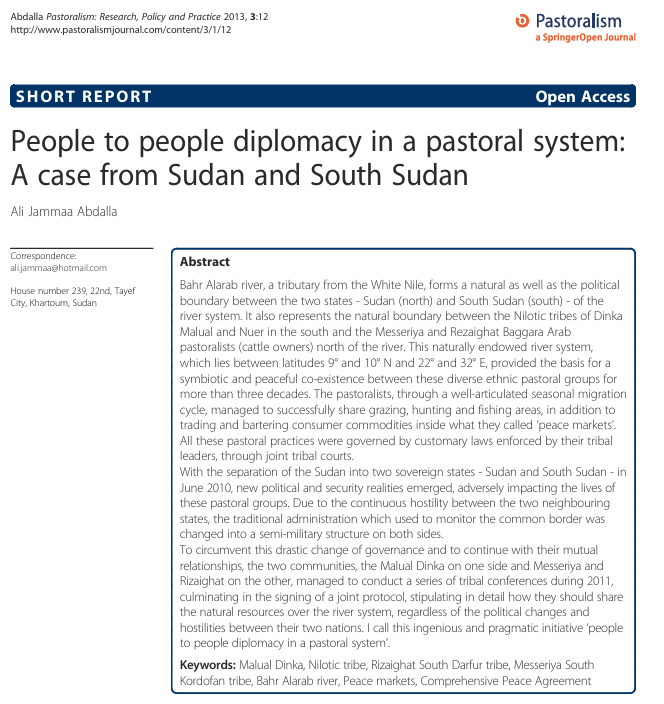
This paper explores the concept of ‘people to people diplomacy’ in the context of pastoral communities in Sudan and South Sudan – specifically, Malual Dinka, Messeriya and Rizaighat. It discusses how these communities have traditionally shared resources such as grazing land, hunting areas, and fishing grounds, and how they have developed customary laws to govern these practices. The report also examines how the separation of Sudan into two states in 2011 impacted these pastoral groups, and how they responded by engaging in people to people diplomacy to maintain their way of life. The report highlights the importance of supporting these communities in managing their own resources and resolving conflicts through traditional mechanisms. It also suggests that reviving traditional tribal administrations could help reduce conflict and ensure effective implementation of peace protocols. Finally, the report emphasizes the need for strong support from both national governments and the international community to sustain “people to people” peace initiatives.
This paper was originally published by Springer.